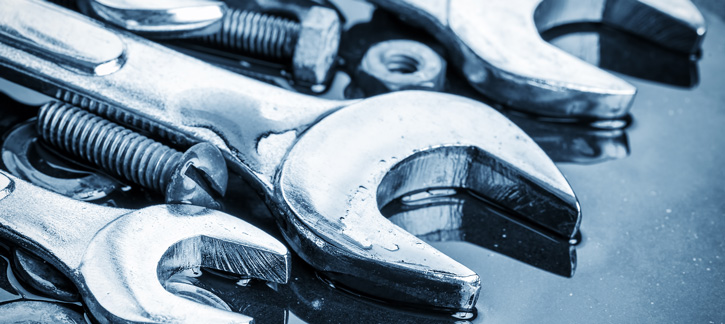There is a common trend among small to medium-sized creative agencies to work solely with WordPress for all of their website projects. At Tragic Media we have worked with WordPress since version 2 and Drupal since version 5, so we have watched first-hand as both of these content management systems (CMS) have evolved into the robust platforms that they are today. We don't force our projects into one solution, instead when we begin a new website we start by examining all of the requirements for the site build as well as possible upgrades and additions that may be required in the future. We compare the needs of the project to the content management and e-commerce systems that we are work with and choose the best system for the project.
A creative agency's goal should be to create a unique and engaging online experience that elevates their client's brand and allows them the opportunity to scale their web presence as they grow. While WordPress can be a good fit for many small to medium-sized websites, any agency that truly wants to be creative and innovative, should read the following 5 reason's creative agencies should use Drupal instead of WordPress when building custom responsive websites.
1. Flexible content management adapts to work for any client
While WordPress' post types allow for some customization, as a whole the system is very limiting when trying to display different types of content. The core of WordPress is still focused on blogging and while some community plugins try to extend the system to do more, there are limitations and comprises that arise. Drupal's core on the other hand is completely unassuming and extremely flexible. With Drupal you can create as many different types of content as you need, whether it is a news article, a photo gallery, an event, a store listing, a product, or an online class. Each type of content can have as many fields as needed, and the output can be controlled in a variety of manners. This flexibility ensures that the system can be customized for any design or type of content and can continue to grow and evolve in the future.
2. Advanced theme capabilities allow for more design freedom
Drupal's theme system is far more sophisticated than WordPress' and thus allows for more flexibility and freedom to build whatever you can imagine. Drupal is built to scale and its advanced theme capabilities keep the number of template files low and maximizes the scalability of its front-end. With Drupal, developers are not confined by the dreaded loop and thus have far more flexibility to output any information from the CMS wherever the design requires.
3. Better blocks mean less static content
WordPress widgets have very limited capabilities and become extremely restrictive when using them for any large or complex website. Drupal blocks on the other hand allow for better control of where and how extra content is displayed on the site. Blocks can be shown based on the current path, whether a user is logged in or not, and the type of content being viewed (to name a few). This advanced block management allows for less templates, less static content, and easier management for your clients without the need for help from a developer.
4. Better security equals less 911 calls
Because the core of WordPress is solely built around blogging, the system is often extended by community plugins in order to achieve the desired design or functionality. While WordPress recently made a huge upgrade by introducing automatic security updates, the actual cause of most sites getting hacked is unsecure plugins. WordPress has little enforcement over the code quality of their community plugins and as a result WordPress is often hacked. Also, now that WordPress auto-updates there is an increased risk of client websites breaking due to plugin compatibility issues. While Drupal has not yet implemented auto-updates, it does have a rigorous security audit required for all modules that are available to download on drupal.org. Also, Drupal using release versions to manage major upgrades to the framework. This helps ensure that modules will stay compatible with the system for the longevity of any site, because Drupal 7 will stay as version 7 until a developer upgrades the system and all the modules to version 8. As a result Drupal has a reputation for being a more secure system and is often used for government websites because of this. By using a system that is more secure you can avoid a panic attacks when your client's site goes up in flames.
5. Scalability for the future
One of the best reasons to work with Drupal is its scalability. No matter what your client comes up with in the future, whether it is adding a forum for cat video enthusiasts, selling subscriptions-based motivational videos, or completely redesigning their website that was just launched...you can rest assured that your client's platform can handle it.
These are just a handful of the many reasons why you should do your research and talk to a professional before deciding what CMS to use for your client's new site. If you are looking for a web developer to help on your project, contact us and let us help you make it a success!

